Blog
Healthy hair is the foundation of any great hairstyle! Discover our top Hair Care Tips to keep your locks looking their best. From nourishing treatments to daily maintenance, we cover everything you need to know to maintain strong, shiny, and beautiful hair. Whether you’re dealing with frizz, split ends, or just want to boost your natural shine, these tips will help you achieve your hair goals effortlessly
-

Healthy Hair Regimen for Natural Hair
Achieving healthy natural hair is a rewarding journey that requires consistency and care. Over the years, I’ve discovered that understanding your hair and committing to a structured routine can yield amazing results. Whether you’re just starting your natural hair journey or looking to refine your regimen, this guide offers practical advice and actionable steps for healthier, more vibrant hair. Understanding Your Hair To craft an effective hair care routine, you must first know your hair’s unique characteristics. From its curl pattern to its porosity, these factors determine how your hair responds to moisture, products, and care practices. Hair Type and Porosity Hair Type: Natural hair textures are categorized into wavy (Type 2), curly (Type 3), and coily/kinky (Type 4), with subcategories A, B, and C indicating the tightness of the curl pattern. For example, Type 4C hair is tightly coiled and prone to dryness, requiring extra moisture. Porosity: This measures…
Read More » -

DIY Hair Masks: The Ultimate Guide to Natural Hair Care
On my journey to healthier hair, I discovered the wonders of DIY hair masks. There’s something incredibly satisfying about using simple, natural ingredients to create treatments tailored just for your hair. Whether you’re battling dryness, dandruff, or just need a boost of shine, homemade hair masks are a game-changer! Let’s dive into everything you need to know, from recipes to the best tips for achieving silky, luscious locks. Benefits of DIY Hair Masks Homemade hair masks offer numerous advantages that make them a favorite for natural hair care enthusiasts like myself. 1. They’re Natural and Chemical-Free DIY masks let you avoid harsh chemicals, giving your scalp and hair a much-needed break from synthetic additives. 2. Cost-Effective Hair Care With ingredients like eggs, honey, and avocado often already in your kitchen, you can save significantly compared to store-bought alternatives. 3. Personalized Solutions Unlike commercial products, DIY masks can be customized to…
Read More » -
What Foods Help Hair Growth? Complete Guide to Nutrition and Healthy Hair
Healthy, strong, and shiny hair is something most of us aspire to, and achieving it isn’t just about choosing the right products. In my experience, the secret often lies in the foods we eat daily. What you put on your plate has a direct impact on the health of your hair. In this guide, we’ll explore the best foods for hair growth, backed by practical tips and structured in a way that’s easy to follow. Introduction to Hair Growth and Nutrition Hair growth is influenced by many factors, including genetics, hormonal balance, and lifestyle habits. However, diet is one of the most significant contributors. Without the right nutrients, hair becomes prone to thinning, breakage, and slower growth. On the other hand, a nutrient-rich diet can fortify your strands, promote a healthy scalp, and stimulate growth. Key Nutrients for Hair Growth Your hair needs specific nutrients to thrive. Below is an…
Read More » -
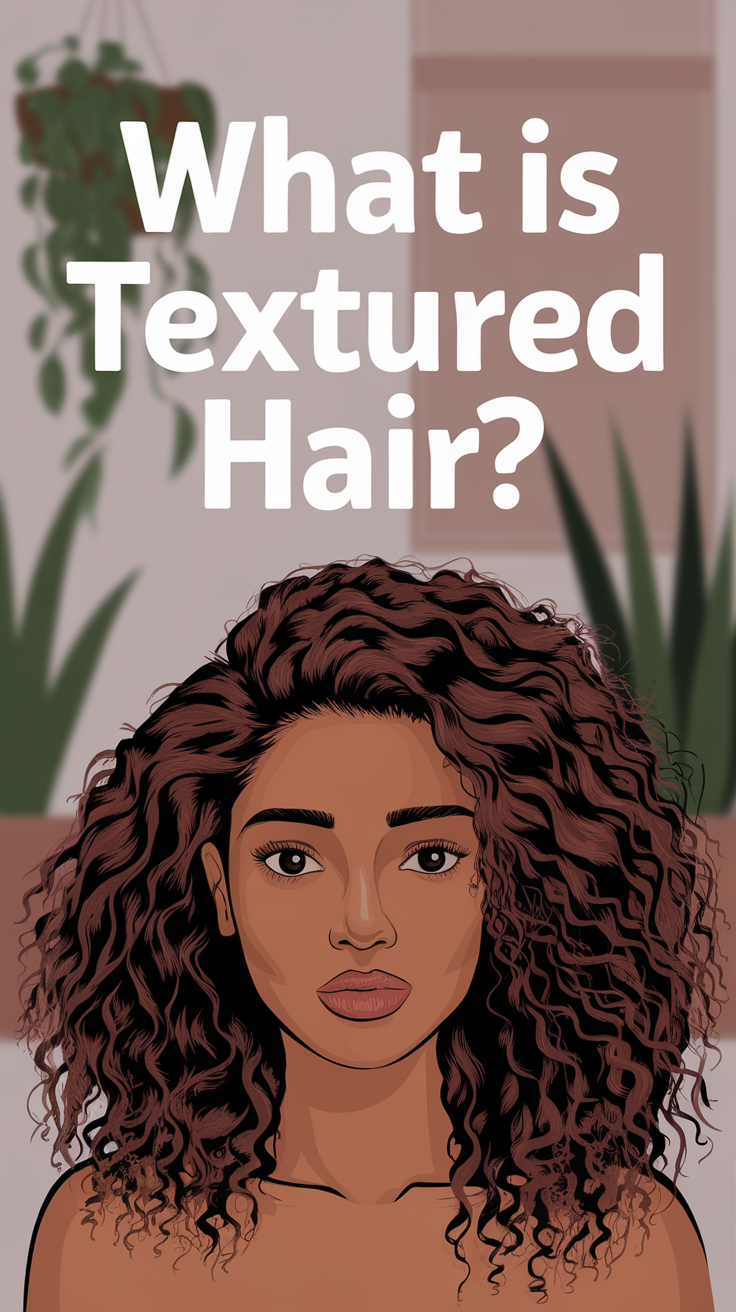
What is Textured Hair?
Textured hair is more than just curls or waves—it’s a unique expression of individuality and identity. Whether you have soft waves, bouncy curls, or tight coils, textured hair requires care and understanding to look and feel its best. In this guide, I’ll explain what textured hair is, how to identify your type, and the best practices for keeping it healthy and vibrant. Understanding Textured Hair At its core, textured hair refers to strands that naturally form waves, curls, or coils. The pattern of your hair is determined by the shape of your follicles: Round follicles produce straight hair. Oval or elliptical follicles create varying levels of curliness. Textured hair is diverse and falls into three main categories: wavy (Type 2), curly (Type 3), and coily/kinky (Type 4). Each type has its unique needs, making it essential to understand your texture to choose the right products and styling techniques. Types of…
Read More » -

How to Hide Gray Hair on Brunettes
As a brunette, I understand how noticeable gray strands can be against darker hair. It’s something I’ve personally navigated, and through trial and error, I’ve found solutions that work for different lifestyles and preferences. Whether you’re looking for a quick fix, a professional approach, or a natural remedy, this guide has everything you need to know. Why Does Hair Turn Gray? Graying hair is a natural process that happens as melanocytes, the pigment-producing cells in hair follicles, reduce their activity. The main reasons include: Causes of Graying Hair Factor Explanation Genetics Determines when and how fast you gray. Aging Natural decline in melanin production over time. Lifestyle Stress, smoking, and poor nutrition can accelerate graying. Health Conditions Vitamin deficiencies, thyroid issues, or anemia. It’s important to recognize the cause, as it can help you choose the best method for managing gray hair. How to Hide Gray Hair on Brunettes 1.…
Read More » -

Why Does My Hair Tangle So Easily? Causes and Solutions for Smooth Hair
Having dealt with easily tangled hair myself, I understand how frustrating it can be to manage knots that seem to form out of nowhere. Tangled hair isn’t just a cosmetic nuisance—it can also be a sign of underlying issues with hair care or health. In this article, I’ll walk you through the reasons why your hair tangles so easily, the best prevention techniques, and actionable tips to achieve smooth, manageable locks. Causes of Hair Tangling Understanding the root causes of tangling is the first step to addressing the issue. Let’s explore the main factors that make hair prone to knots: 1. Hair Texture and Type Some hair textures are naturally more prone to tangling: Curly or Wavy Hair: The bends and twists in curly and wavy strands create more opportunities for individual hairs to interlock. Fine Hair: Fine hair is delicate and more likely to wrap around itself, forming knots.…
Read More » -
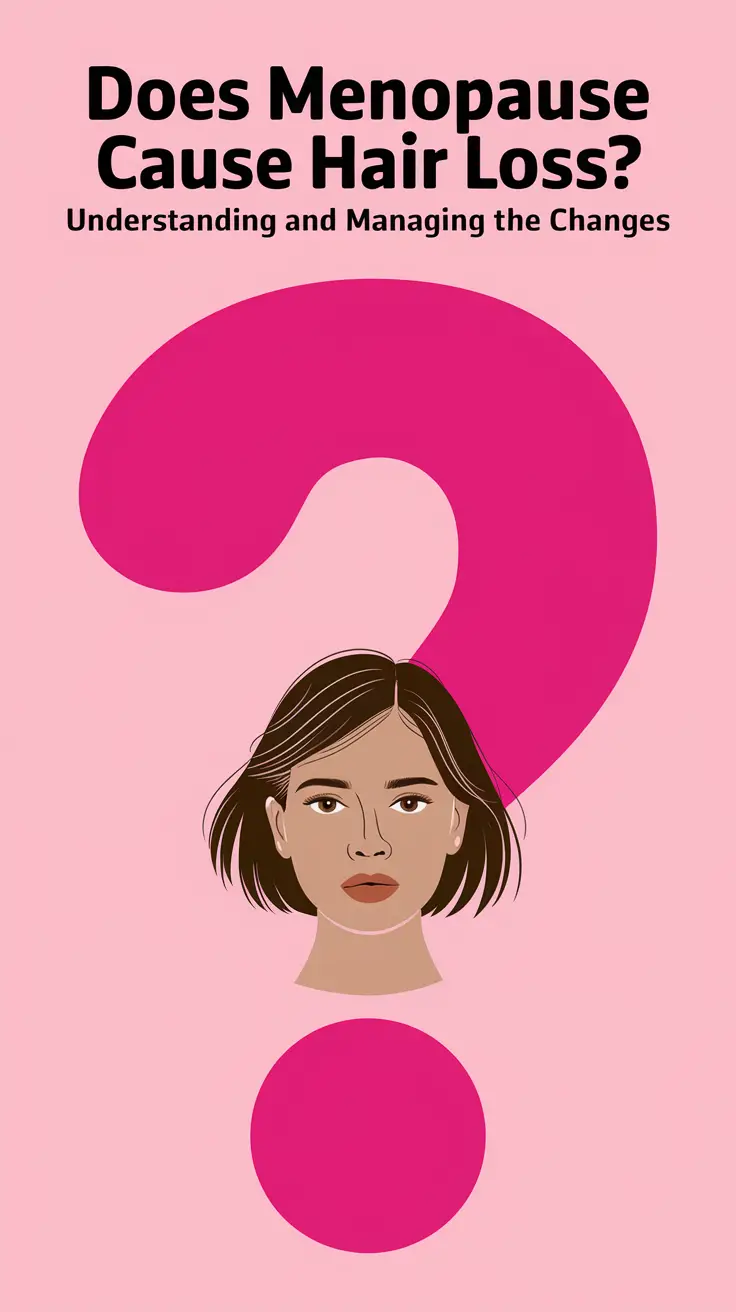
Does Menopause Cause Hair Loss? Understanding, Managing, and Preventing the Changes
Hair loss during menopause is a topic that many women don’t openly discuss, but it’s a reality that can impact self-esteem and confidence. This article dives into the reasons behind menopausal hair loss, practical solutions to manage it, and how you can take control of your hair health during this life stage. On my journey of learning about this topic, I discovered many insights that I believe can help anyone experiencing similar challenges. Why Does Menopause Cause Hair Loss? The Hormonal Shift Menopause triggers significant hormonal changes. The body produces less estrogen and progesterone, two hormones essential for stimulating hair growth. As their levels decline, hair growth slows, and strands become thinner. At the same time, androgens (male hormones) can increase, causing hair follicles to shrink and resulting in visible thinning, especially around the crown or temples. Recognizing Menopausal Hair Loss Key Symptoms Identifying hair loss early is essential for…
Read More » -
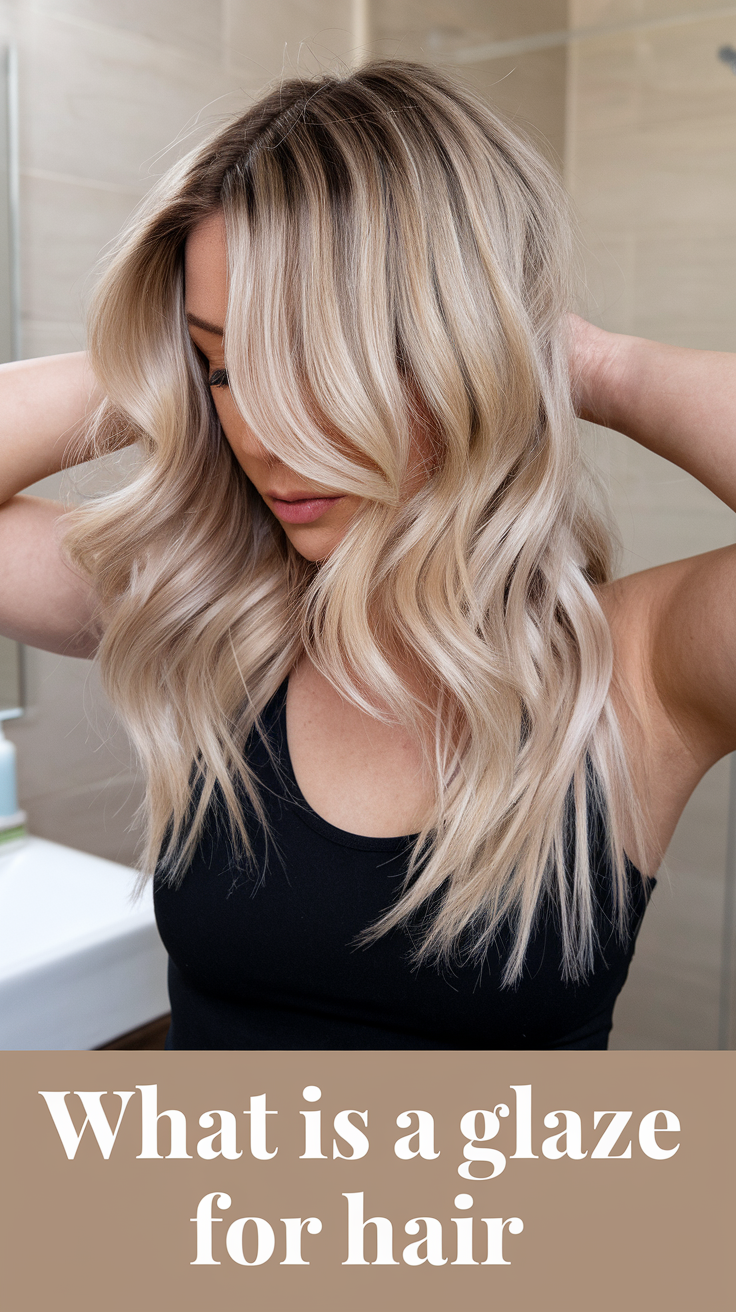
What Is a Hair Glaze? The Complete Guide to Glossy Hair
Maintaining vibrant, shiny, and healthy-looking hair can feel like a constant challenge, especially with the wear and tear from styling, coloring, and environmental factors. Enter the hair glaze—a transformative treatment that has become a go-to solution for adding brilliance and vitality to hair without the commitment of permanent dyes. In this article, I’ll share what a hair glaze is, its benefits, how to use it, and why it’s worth trying. By the end, you’ll understand why this simple yet effective treatment is a game-changer in the world of hair care. What Is a Hair Glaze? A hair glaze is a non-permanent treatment designed to enhance the shine and vibrancy of your hair. Unlike hair dye or gloss, a glaze doesn’t penetrate the hair shaft. Instead, it forms a protective layer on the surface, reflecting light for a glossy finish. How Does It Work? The science behind hair glazes lies in…
Read More » -
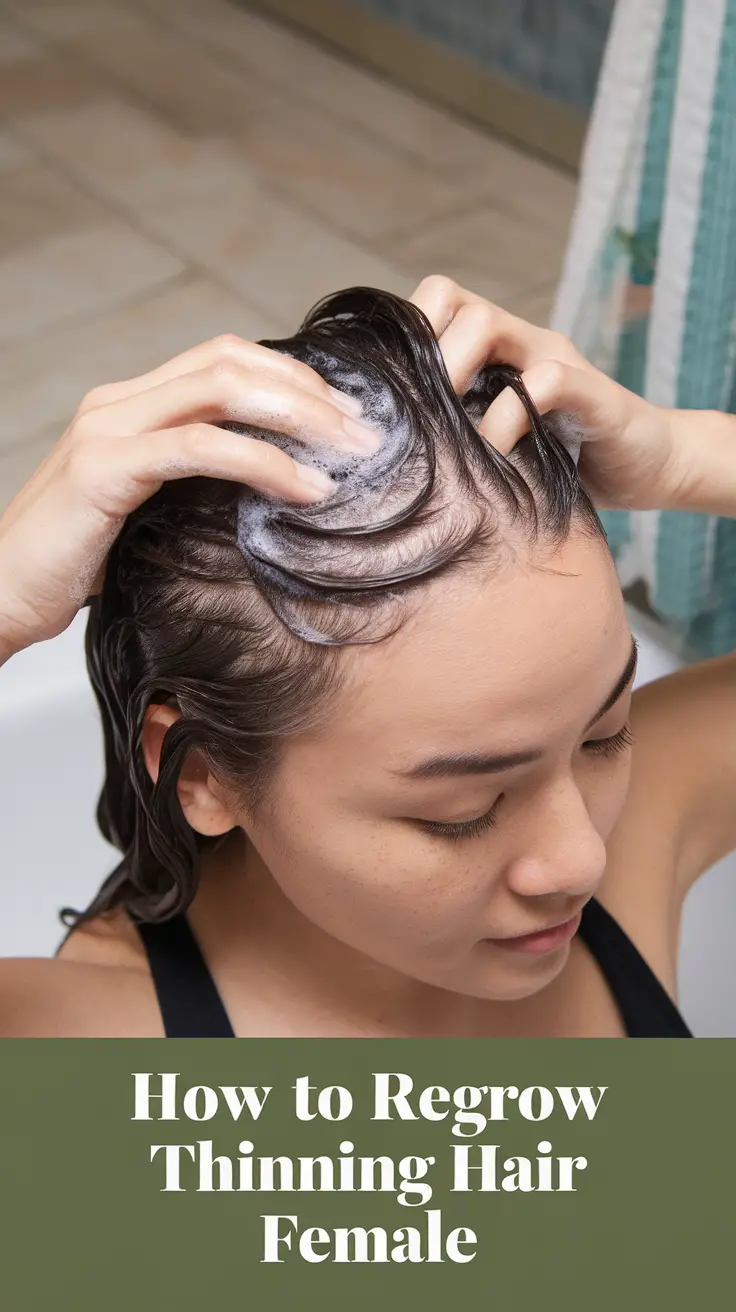
How to Regrow Thinning Hair for Women | Comprehensive Guide
Thinning hair can feel like a daunting issue, but it’s one that many women face. Whether the cause is stress, hormonal changes, or genetics, understanding the problem is the first step toward finding the solution. On my journey to healthier hair, I discovered some powerful strategies that I’m excited to share. With the right care, treatments, and patience, you can revive your hair and regain your confidence. Why Does Hair Thin? Hair thinning can happen for several reasons. Knowing the root cause is essential to choose the right treatment. Common Causes of Thinning Hair Hormonal Changes Hormones, especially during menopause, pregnancy, or conditions like PCOS, can disrupt hair growth cycles. Nutritional Deficiencies Insufficient iron, zinc, or protein intake weakens hair follicles. Stress Chronic stress forces hair into a resting phase, leading to temporary shedding. Medical Conditions and Medications Autoimmune diseases like alopecia areata and certain medications can result in hair…
Read More » -
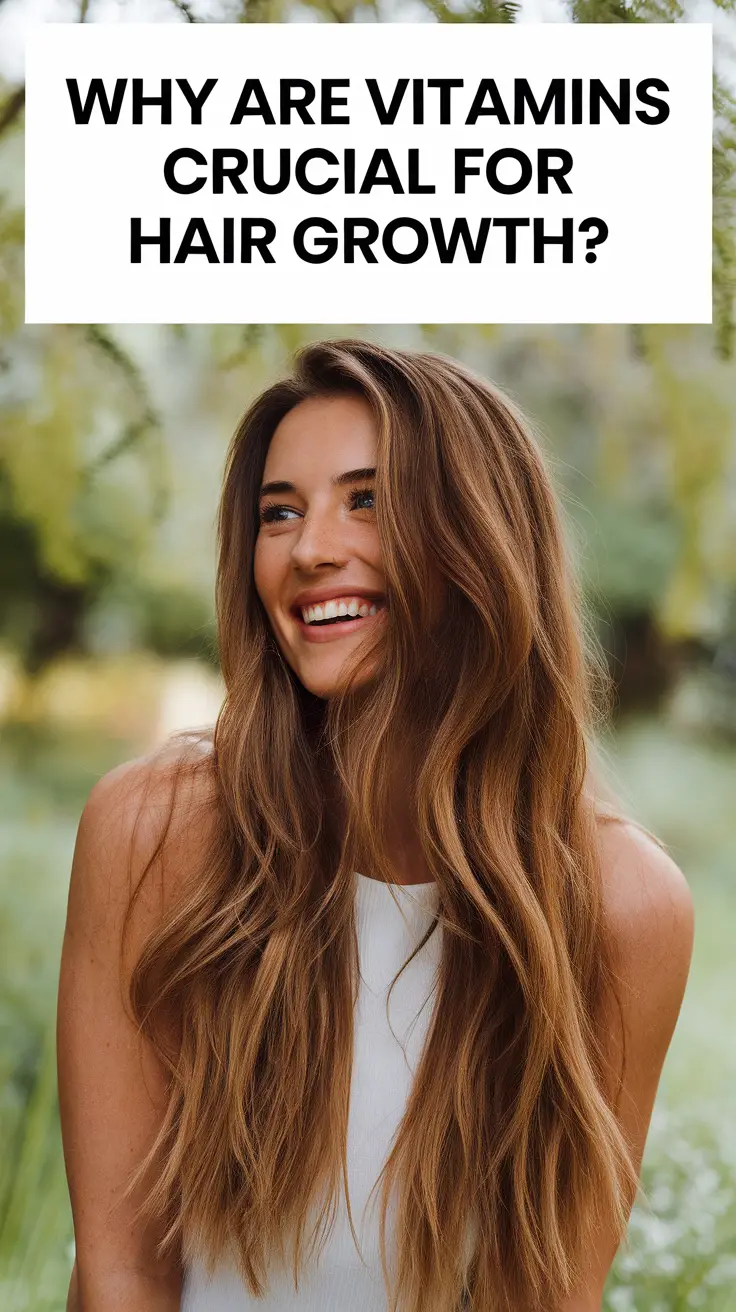
What Vitamins Are Good for Hair Growth?
Achieving healthy, vibrant hair is more than just using the right products—it’s about nourishing your hair from the inside out. Vitamins and minerals play a key role in promoting hair growth and preventing issues like thinning or dullness. On my own journey to healthier hair, I discovered how certain nutrients can make all the difference. Let’s explore these vitamins and how you can use them to unlock your hair’s full potential. Why Are Vitamins Essential for Hair Growth? Hair is one of the fastest-growing tissues in the human body, and like any other part, it relies on proper nutrition to thrive. Vitamins act as catalysts for essential bodily processes, such as cell regeneration and nutrient absorption, which directly impact the health of your hair. Without the right balance of vitamins, you may notice hair loss, slow growth, or even brittle strands. The Best Vitamins for Hair Growth Vitamin A: The…
Read More »
